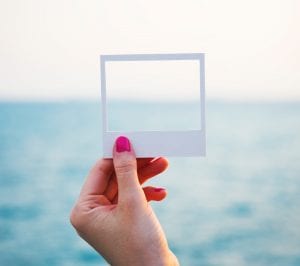I often try to ensure these posts have some kind of narrative, some flow or progression. I’m a writer; I build stories out of everything. Over the last year, I have started writing in the form of nonfiction. When writing nonfiction, I’ve noticed that I can take one event and, just by changing the tone or the focus or the language, change its perception. I can turn the villain into the hero. The framing is everything.
Another medium where framework is everything is social media. In Siapera’s Understanding New Media (2013) she writes that ‘Foucault famously argues that notions, institutions, disciplines and even selves that appear ‘natural’ are in fact all constructed’ (Siapera 2013, p.8). From #nofilter to “no makeup” makeup looks, we are constantly faking authenticity, trying to choreograph day-to-day life to fit an ideal storyline. And now thanks to story features on Snapchat, Instagram and now even Facebook, people can if not live, then at least appear to live these ideal lifestyles. Social media to life is like the framing to nonfiction writing. We can write our own narratives, linear and chronological like a storybook. But why are we drawn to this? What compels people to take the time out of their day to present the world with a perfect snapshot of themselves? It’s exactly as I said earlier. If we write the story, we can turn the villain into the hero. History is written by the victors? No, history is written by those who took the time to put it on Instagram.
Storytelling on social media goes beyond simply controlling the way our friends perceive us. It can control our values and beliefs. It can condition us to believe that there are only a select few ideal lifestyles and subconsciously shame us when we fail to achieve them. As Siapera notes, ‘humans themselves are led by the media, not realizing the many and varied effects and consequences’ (Siapera 2013, p.8). This new landscape of social control is potentially dangerous, not only for us but for our future generations who will inherit our media practices. Will they intentionally seek the Insta-worthy stories of day-to-day life and forget to appreciate the moments that are not picture-perfect? That are not filtered and edited and interesting enough for the world to see. Will they forget about the little things?
However, it doesn’t have to be like this. One element Siapera (2013) highlights in new media is the fact that it is constantly changing and evolving. Even from user to user, it evolves. The way we use social media changes it; we contextualise it. A stripper can use Instagram as an advertising platform. A group of students can use Facebook to organise group assignments. A writer can use Twitter as a source of writing prompts and inspiration.
In 2018, what we put online is often more impactful than what we say IRL, and in that outreach there’s a kind of empowerment. Authors have been published from online fanfictions (*cough* E.L. James *cough*), to the point where there are now publishing imprints like Swoon Reads that allow people to post their manuscripts on their website for anyone to read and then publish the most popular ones.
Screenshot from swoonreads.com
Last week, I briefly mentioned that I met one of my best friends on Overwatch. From the first tentative ‘asl?’ in the chat box on Overwatch, I repurposed the platform from just a game, to a central place in my social life. Often when I play with my best friends, it’s less about the game and more about just hanging out with each other. When I started writing reviews on Goodreads, it was less about the fact that other people would read it (though that did improve my writing quality) and more for my own personal reference.
One of my favourite quotes from Siapera’s book is:
‘the bonds between people in the network society are tenuous and temporary, often based on common views and beliefs, uniting people across borders, but equally fragmenting them within given places’ (Siapera 2013, p.15)
The network can bring people together, sometimes quite deeply, like my best friends and I, but it can also give us an excuse not to hang out IRL. Other times, it may temporarily connect us with a community of people, like the subreddit r/breakups or the Twitter conversation on your favourite celebrity’s death, when we need it most.
So though social media and its ability to construct narratives can be potentially dangerous, indoctrinating the individual with an ideal lifestyle, it can also be anything you want it to be because that’s what makes new media new media–its Pokemon-like ability to evolve.
_______________________________
References
Siapera, E 2013, Understanding New Media, SAGE Publications, London.




